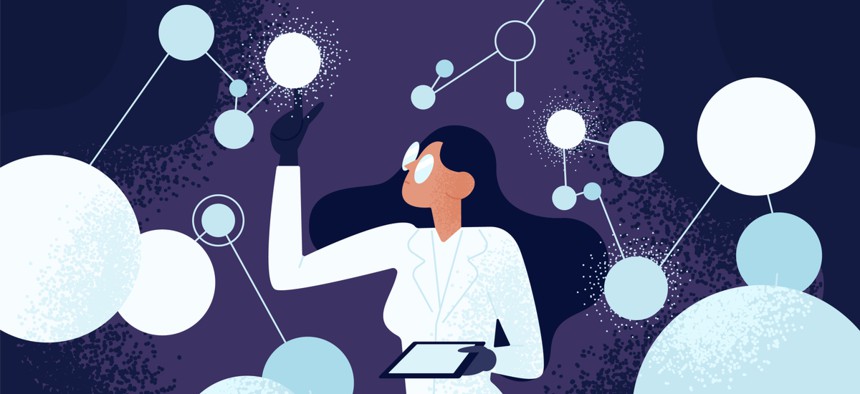In the Age of AI, Expect ‘Lifelong Learning’ to Stay Employed

GoodStudio/Shutterstock.com
Jobs will be disrupted and the way people work will change, experts said.
The future of work will be dramatically transformed by artificial intelligence, so Americans should be prepared to engage in lifelong learning, tech experts said Monday.
“New technologies are changing so quickly that any of us who are even experts in the field get out of date very quickly,” Lynne Parker, White House Office of Science and Technology Policy’s assistant director for artificial intelligence, told attendees of The Economist’s “The AI Agenda” event in Washington. “So nationally, we need to foster an environment where we are used to the idea that we’ll have lifelong learning. It’s no longer that you go through K-12, or you go through college, and you’re done.”
Parker highlighted some of the government’s attempts at reskilling the workforce to keep up with the changing landscape and encouraged all industries to emulate such efforts. She also said jobs are being affected across the board and “to a wide range of extents,” but it is important to embrace new technologies, such as AI, to alleviate some of the impending challenges workers will face.
“Regardless of what kind of job you have—whether it’s in manufacturing, transportation, healthcare, or law—there are ways that AI can help you. It can provide tools to get rid of some of the mundane kinds of tasks,” Parker said. “However if we are not comfortable with those tools, [...] then we will feel like we will have our hands tied behind our back.”
National Science Foundation Director France Córdova agreed that AI is becoming slowly embedded into everything Americans do, including driving, shopping, flying and especially in regards to how people do work. She said the technology is also creating innovative new opportunities, particularly within the federal government.
“Part of what the government is doing now is renewing itself to all of its agencies,” Córdova said. “And AI is playing an important role in that.”
Within the NSF, for example, Córdova said AI is being used to approach inoperable databases, “of which [they] have a lot.” She said the foundation is also looking at AI methods that can help them better identify more diverse reviewer pools for funding research.
Daniel Weitzner, founding director of MIT’s Internet Policy Research Initiative and principal research scientist at MIT CSAIL, said AI’s evolution and impacts on society will be “incremental” and “lumpy.” He said, as best as anyone can predict, the changes that AI brings to the workforce will be much more complicated than simply eliminating jobs. Instead, it is more likely that it will change the way people work.
“So I think the real question is how do we manage that change and how do we equip people to better deal with that change,” Weitzner said. “And I think, most importantly, it’s how do we understand that change better and make sure that that change is happening in a way that’s consistent with the values we have as society.”
NEXT STORY: White House Launches AI.gov



